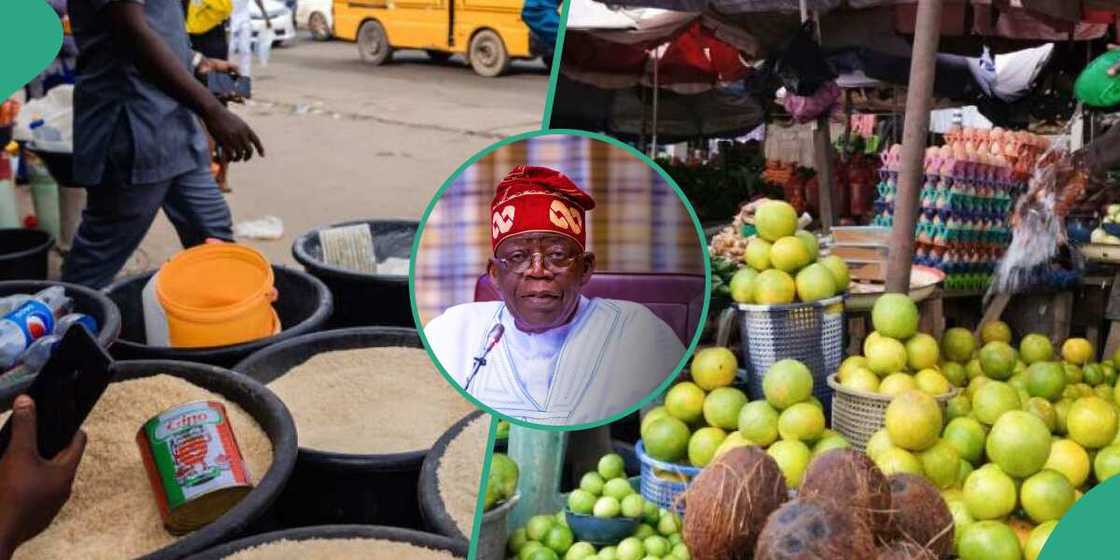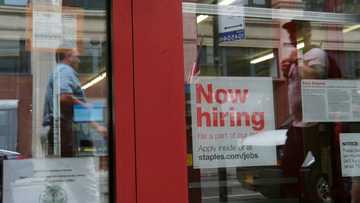Pressure Mounts as Expert Predicts December Inflation Rate to Reach 35.2 Per Cent
- Cowry is predicting that the inflation for December will hit 35.20%, up from the 34.6% seen in November 2024
- This prediction is hinged on the pressure from seasonal price increases associated with the Yuletide
- The Cowry outlook predicts grimmer figures for 2025 as the government borrowings and weakening naira compound the cost-of-living crisis
CHECK OUT: Education is Your Right! Don’t Let Social Norms Hold You Back. Learn Online with LEGIT. Enroll Now!
Financial experts have predicted that the December 2024 inflation rate will rise to 35.2%, based on the price increase in goods and services often experienced during the Christmas season.
The analysis is contained in the Cowry Weekly Financial Markets Review & Outlook.
This would show an upward trend of continuation of inflation, as was seen in the previous months.

Source: Facebook
Inflation still rising
The National Bureau of Statistics (NBS) CPI report released last month showed that in November 2024, inflation hit 34.60%, up from 33.88% in the previous month.
The month-on-month inflation increase means more financial strain on Nigerian households, especially as the headline inflation is driven by Food inflation.
The analysts say in the report;
“Several factors have contributed to this anticipated rise in inflation. The festive season played a critical role, as heightened demand for goods, services, travel, and accommodation during the holiday period exerted significant upward pressure on prices. This seasonal spike in spending added to an already challenging inflationary environment, driven by structural and economic issues.”
The projected figure for December 2024 would also bring the 2024 annual average inflation up to 33.21%, significantly higher than the 24.52% annual average inflation rate for 2023. Overall, the Nigerian economy is still under intense price pressures.
CBN tries to rein in inflation
Throughout 2024, the Central Bank of Nigeria (CBN) maintained its monetary tightening policies to stop inflation from rising further, but this has not done much.
Despite consistently raising interest rates to close the year at 27.5%, inflation continued to push upwards, driven by food inflation, which also hit 39.93% by November 2024.
The Cowry Assets Analysts suggest that the CBN measures are not yielding the desired results because of other factors, such as high energy costs, inadequate infrastructure, and logistical challenges, which generally translate to higher business operations costs and consumer prices.
Govt loans add more pressure to inflation
The Nigerian government has projected a 2025 budget deficit of N13.08 trillion to be funded by more borrowings.
The experts warn in their outlook that additional borrowing, combined with the weakening naira, could worsen inflation in Nigeria. They argue that as the naira weakens further, imported goods become more expensive in the Nigerian market.
The rising energy and fuel costs may also compound the situation further if the current trend continues.
Two inflation figures expected for December 2024
In related news, Legit.ng reported earlier that the NBS would be releasing two CPI reports for December 2025.
The first report, to be released on January 15, will be computed using the old base year.
The second, to be released later in the month would use the new rebased year, with 2023 as the weight reference period and 2024 as the price reference period.
The rebased GDP would include data from the digital economy, pension fund administrators, the Nigerian Social Insurance Trust Fund (NSITF), the National Health Insurance Scheme (NHIS), modular refineries, domestic households as employers of labour, and coverage of illicit and covert activities.
PAY ATTENTION: Сheck out news that is picked exactly for YOU ➡️ find the “Recommended for you” block on the home page and enjoy!
Source: Legit.ng




